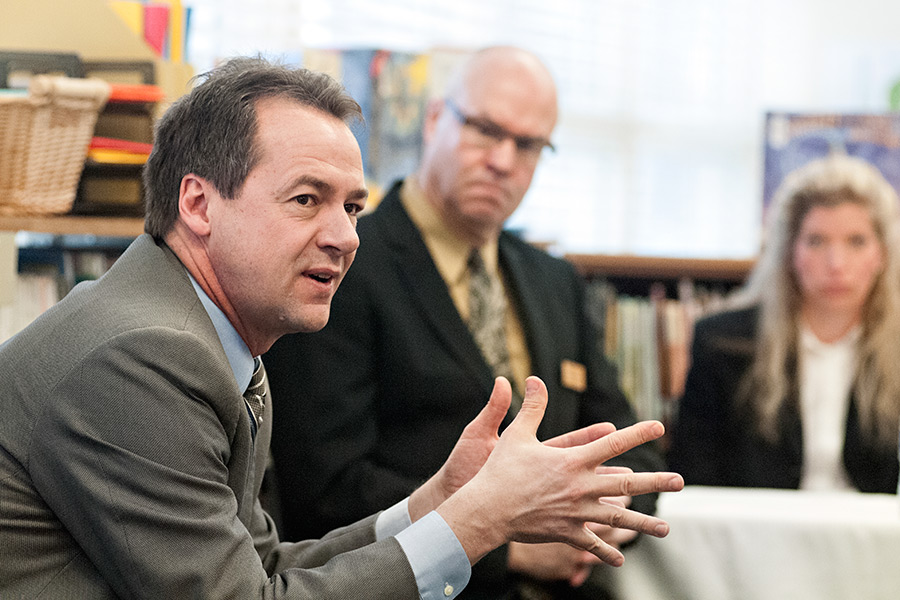HELENA — The U.S. Supreme Court’s decision to temporarily freeze the Obama administration’s Clean Power Plan gives Montana Gov. Steve Bullock breathing room in his campaign for a second term.
The high court’s stay allows the Democrat’s re-election campaign to avoid — for now — the thicket of political thorns growing out of the debate over the future of Montana’s coal industry and power generation.
While Bullock likely won’t have to face a decision before the election on emissions cuts that was being ordered by the U.S. Environmental Protection Agency, the future of the state’s coal industry will likely remain a key issue in the governor’s race.
“My sense is that he wants this to go away and keep his head down,” said Robert Saldin, a political science professor at the University of Montana. “Anything he says here could upset his supporters.”
The court’s decision cools the simmering clash between some of Bullock’s key supporters — the labor unions that want to retain jobs for dues-paying workers in coal-related industries, and the environmentalists who want to reduce carbon emissions from coal-burning power plants.
Ever since the federal Environmental Protection Agency issued emission-reduction targets last summer, Bullock has been carefully navigating the issue. He again attempted to placate both sides following the high court’s decision.
“I have been clear that I think these rules were unfair to Montana,” Bullock said in a statement Tuesday evening that also announced his decision to put on hold the work of an advisory panel he assembled to address the EPA’s emission mandates. “What we cannot put on hold, however, is the need to address climate change and embrace Montana’s energy future, and I am committed to ensuring we do so on our own terms.”
Montana’s target emission-rate cuts are the steepest in the nation at 47 percent by 2030. The state is a major coal producer and has several coal-fired power plants, including the Colstrip plant, the second-largest west of the Mississippi River.
Bullock did not make himself available for questions on Wednesday. He spent part of his day in Billings making peanut butter and jelly sandwiches for the homeless before joining supporters for wine and appetizers at a campaign fundraiser.
His likely GOP challenger, Greg Gianforte, was in a midst of another statewide tour, this time focused on government regulations. Gianforte, in a telephone interview, said that he would continue hammering Bullock for what he called a lack of leadership over the state’s energy policy.
Gianforte criticized the governor for disbanding his Clean Power Plan Advisory Council, saying the advisory panel should have been kept in place to continue working on the issue.
“I think that was a mistake. This fight is not over,” Gianforte said. “A stay is not a dismissal, and we need this coal council that the governor assembled. They should be repurposed to help Attorney General Tim Fox defend the interests of Montana.”
Fox filed a lawsuit against the EPA on the behalf of the state, joining 27 other states in challenging the agency’s emissions mandates.
Saldin agrees that the debate over energy policy will continue to loom over the gubernatorial campaign.
“We can still expect to see (Gianforte) to go after the governor on the issue,” he said. “But I do think a little bit of energy was sucked out of it.”
